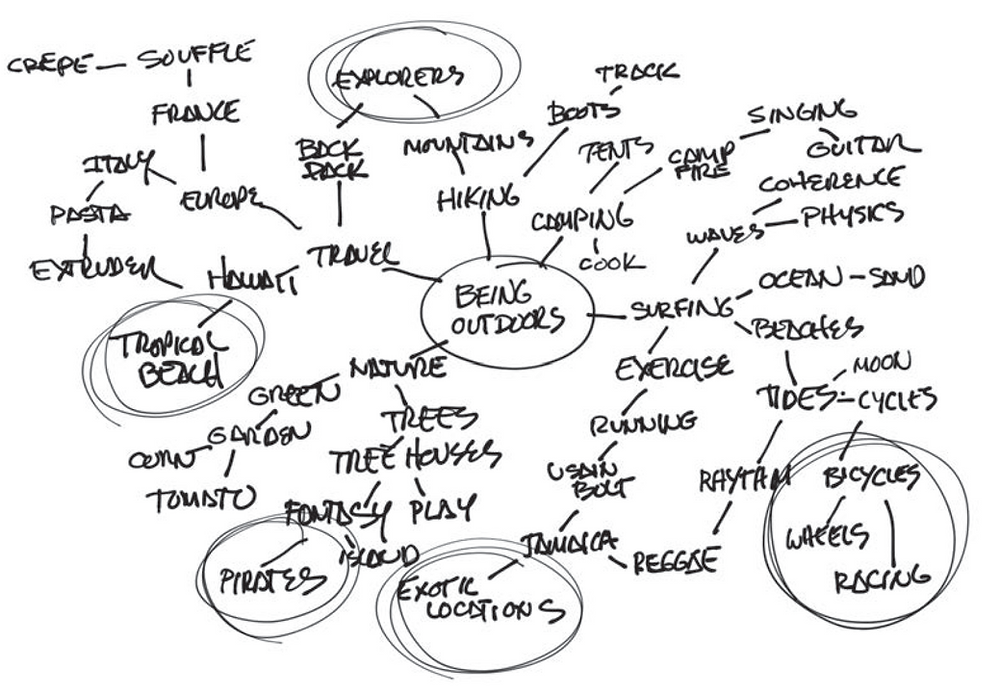Finding Your Good Life: A Journey Of Self-Discovery And Growth

Table of Contents
Understanding Your Values and Passions
Identifying what truly matters to you is the cornerstone of building a good life. Your values are the deeply held beliefs that guide your decisions and actions, shaping your sense of purpose and direction. Understanding your passions, on the other hand, illuminates the activities and pursuits that bring you joy and fulfillment. When your values and passions align, you're on the path to a truly meaningful existence.
Self-Reflection Techniques
Several techniques can help you uncover your core values and passions:
-
Journaling prompts focused on identifying core values: Ask yourself questions like: "What qualities do I admire most in others?", "What makes me feel most alive?", "What would I do if I had unlimited time and resources?". Regular journaling allows for deeper introspection and a clearer understanding of your inner self.
-
Mindfulness exercises to connect with your inner self and understand your desires: Practices like meditation and mindful breathing create space for quiet reflection, allowing you to tune into your intuition and identify what truly resonates with you. These practices help silence the external noise and amplify your inner voice.
-
Values clarification exercises: These exercises involve ranking various values in order of importance, helping you prioritize what truly matters. Numerous worksheets and online resources are available to assist in this process.
-
Examples of core values: Family, creativity, contribution, learning, adventure, health, freedom, security, spirituality, and integrity are just a few examples. Your personal list will be unique to you.
-
How identifying values helps define life goals and choices: Understanding your values provides a framework for setting meaningful goals and making decisions that are aligned with your authentic self. This leads to greater fulfillment and a stronger sense of purpose.
-
The importance of aligning actions with values for a fulfilling life: Inconsistency between values and actions leads to internal conflict and dissatisfaction. Living in alignment with your values brings about a sense of integrity and peace.
Defining Your Purpose and Goals
Once you understand your values, you can begin to define your purpose – your reason for being. Your purpose is not necessarily a grand, world-changing mission; it's your unique contribution to the world, aligned with your values and passions. From this purpose, you can set meaningful goals that propel you forward on your journey of finding your good life.
Setting Meaningful Goals
Effective goal-setting is crucial for translating your purpose into tangible actions:
-
Setting SMART goals (Specific, Measurable, Achievable, Relevant, Time-bound): SMART goals provide clarity, direction, and a framework for tracking progress. Instead of a vague goal like "be healthier," a SMART goal might be "walk for 30 minutes three times a week for the next three months."
-
Breaking down large goals into smaller, manageable steps: Overwhelming goals can lead to procrastination and discouragement. Breaking them down into smaller, achievable steps makes the journey less daunting and more rewarding.
-
Visualizing success and creating a vision board: Visualizing your goals helps to solidify your commitment and maintain motivation throughout the process. A vision board can serve as a powerful visual reminder of your aspirations.
-
Examples of purpose-driven goals: Starting a business aligned with your passion, pursuing a creative endeavor, contributing to a cause you believe in, improving your relationships, or enhancing your physical and mental well-being.
-
Importance of regular review and adjustment of goals: Life is dynamic; your goals should be adaptable to changing circumstances and priorities. Regular review allows for course correction and ensures you stay aligned with your purpose.
-
Aligning goals with personal values: Ensuring your goals align with your core values ensures that you are pursuing things that truly matter to you, leading to greater satisfaction and fulfillment.
Cultivating Self-Growth and Resilience
Embracing continuous learning and personal development is crucial for navigating life's challenges and finding lasting fulfillment. Life is a journey of growth, and actively seeking self-improvement is essential for building resilience and creating a life you love.
Strategies for Self-Improvement
There are many avenues for personal growth:
-
Reading self-help books and articles: Gaining knowledge and insights from experts can provide valuable tools and strategies for overcoming obstacles and achieving your goals.
-
Taking online courses or workshops: Targeted learning in specific areas, like communication skills or stress management, can significantly improve various aspects of your life.
-
Practicing mindfulness and meditation: These practices cultivate self-awareness, reduce stress, and enhance emotional regulation.
-
Seeking mentorship or coaching: Guidance from experienced individuals can provide support, accountability, and valuable insights.
-
Examples of personal development areas: Communication skills, emotional intelligence, stress management, financial literacy, time management, and creative skills are just a few examples.
-
Embracing failure as a learning opportunity: Setbacks are inevitable; viewing them as opportunities for learning and growth is key to resilience.
-
Self-compassion and self-care: Prioritizing self-care – physical, emotional, and mental – is crucial for maintaining well-being and navigating challenges.
Building Positive Relationships and Connections
Strong social connections are essential for a happy and healthy life. Nurturing meaningful relationships provides emotional support, belonging, and a sense of community. These connections enrich our lives and contribute significantly to our overall well-being.
Nurturing Meaningful Relationships
Building and maintaining strong relationships requires effort and intentionality:
-
Prioritizing quality time with loved ones: Spending meaningful time with those you care about strengthens bonds and fosters connection.
-
Practicing active listening and empathy: Truly understanding and valuing the perspectives of others is crucial for building trust and intimacy.
-
Building a supportive network of friends and mentors: Surrounding yourself with positive and supportive individuals provides encouragement and guidance.
-
Importance of healthy boundaries in relationships: Establishing and maintaining healthy boundaries protects your well-being and ensures healthy relationships.
-
Benefits of giving back to the community: Contributing to something larger than yourself fosters a sense of purpose and strengthens community bonds.
-
Strategies for building and maintaining strong relationships: Open communication, mutual respect, shared activities, and consistent effort are vital for nurturing strong relationships.
Conclusion
Finding your good life is a continuous journey, a process of self-discovery and growth that unfolds over time. By understanding your values, defining your purpose, cultivating self-growth, and nurturing meaningful relationships, you can create a life filled with purpose, joy, and fulfillment. Remember, this is your journey – embrace the process, celebrate your progress, and never stop striving to find your good life. Start your journey today – begin exploring what truly matters to you and start building the life you've always dreamed of. Begin your quest for finding your good life now! Don't just exist; truly live your good life.

Featured Posts
-
 Why Current Stock Market Valuations Arent A Cause For Investor Alarm Bof A
May 31, 2025
Why Current Stock Market Valuations Arent A Cause For Investor Alarm Bof A
May 31, 2025 -
 Persistent Rain In Seattle Weekend Outlook
May 31, 2025
Persistent Rain In Seattle Weekend Outlook
May 31, 2025 -
 How To Achieve The Good Life Strategies For Wellbeing
May 31, 2025
How To Achieve The Good Life Strategies For Wellbeing
May 31, 2025 -
 Jaime Munguias Drug Test Result Official Statement Released
May 31, 2025
Jaime Munguias Drug Test Result Official Statement Released
May 31, 2025 -
 Designing Your Good Life A Practical Guide
May 31, 2025
Designing Your Good Life A Practical Guide
May 31, 2025
